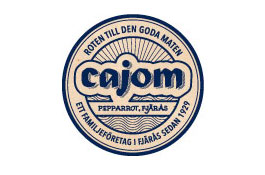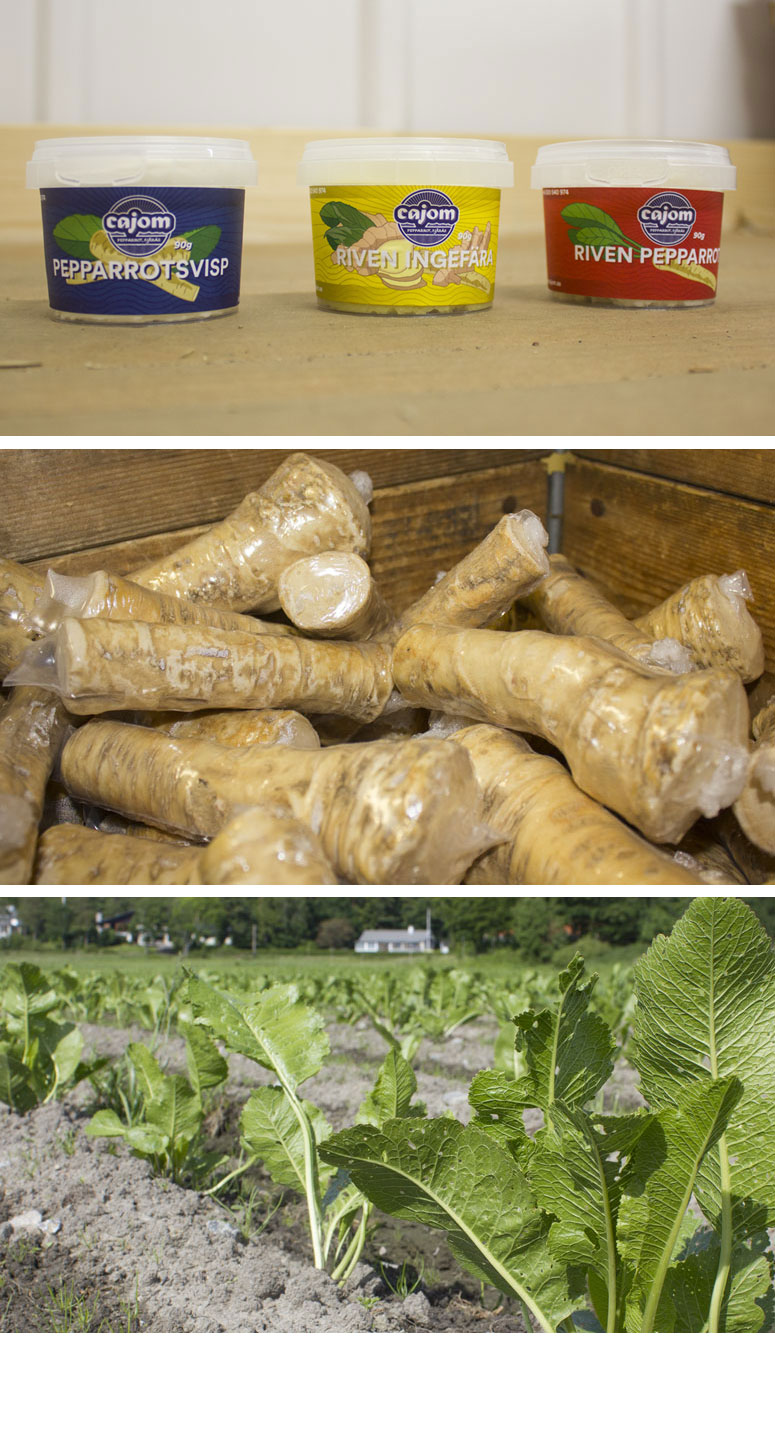Scenic Fjärås, with views over the Kungsbacka Fjord, is home to family business Cajom Pepparrot AB. Since 1929, they’ve been growing, processing and selling the local area’s famed horseradish. This proud heritage is now in the capable hands of the fourth generation.

Horseradish has enjoyed a surge in popularity in Swedish cuisine in recent years. The demand for horseradish has outstripped production, and Cajom is one of Sweden’s major suppliers of top quality, fresh and processed horseradish for the Swedish market.
In the old days, everything was done by hand, and they went from selling the fresh horseradish whole or cut up to grating it as well. This was also done by hand at first, but the process was eventually mechanised.
The grated horseradish was packed into glass jars using a teaspoon – while tears rolled down the packers’ faces! Horseradish is extremely pungent and good ventilation is essential during processing. All grating and packing is now managed in a well-sealed flow.
The glass jar is a thing of the past; it’s been replaced by convenient and food-safe plastic tubs.
![]() Initially we bought pre-printed plastic tubs for each kind that needed to be packed,” explains Lisa Boström, co-owner of Cajom Pepparrot AB.
Initially we bought pre-printed plastic tubs for each kind that needed to be packed,” explains Lisa Boström, co-owner of Cajom Pepparrot AB.
This turned out to be a very costly way of doing things. In the food industry, rules and directives can change overnight and one single marking mistake made the pre-printed tub worthless.
A cost-effective alternative with low one-off costs, no costly cliché changes and shorter lead times. The perfect solution for Cajom.
Their customer base is loyal and well-established, but demand still fluctuates. It was the need for a more flexible solution that paved the way for collaboration between Cajom and Boxon.

Boxon’s solution
The pre-printed plastic containers were swapped for plain ones. The slightly conical tub required a curved label that encircled the tub without creating “ears” (protruding corners that catch on the other tubs during handling).
Another important aspect was the label’s resistance to moisture and cold. The horseradish is pre-washed and handled in a damp environment, and is kept in cold storage after processing. A label for food products shouldn’t fall off under any circumstances.
Lisa also wanted flexible and fast purchasing of labels – small quantities, but with varied printing that’s easy to change as necessary. Christer Martinsson, Boxon, suggested a customised label with digital printing.
Digital printed labels are very easy to change and print in smaller quantities. A cost-effective alternative with low one-off costs, no costly cliché changes and shorter lead times.

